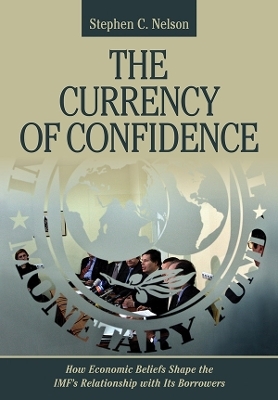
The Currency of Confidence
Cornell University Press (Verlag)
978-1-5017-0512-0 (ISBN)
The IMF is a purposive actor in world politics, primarily driven by a set of homogenous economic ideas, Stephen C. Nelson suggests, and its professional staff emerged from an insular set of American-trained economists. The IMF treats countries differently depending on whether that staff trusts the country's top officials; that trust in turn depends on the educational credentials of the policy team that Fund officials face across the negotiating table. Intellectual differences thus lead to lasting economic effects for the citizens of countries seeking IMF support.Based on deep archival research in IMF archives and personnel files, Nelson argues that the IMF has been the Johnny Appleseed of neoliberalism: neoliberal policymakers sprout and take root in countries that have spent recent decades living under the Fund’s conditional lending arrangements. Nelson supports his argument through quantitative measures and illustrates the dynamics of relations between the Fund and client countries in a detailed examination of newly available archives of four periods in Argentina’s long and often bitter relations with the IMF. The Currency of Confidence ends with Nelson’s examination of how the IMF emerged from the global financial crisis as an unexpected victor.
Stephen C. Nelson is Assistant Professor of Political Science at Northwestern University. In 2010 he won the American Political Science Award's Helen Dwight Reid Award for best dissertation in the field of international relations.
1. Understanding the IMF and Its Borrowers2. How Shared Economic Beliefs Shape Loan Size, Conditionality, and Enforcement Decisions3. Playing Favorites: Quantitative Evidence Linking Shared Economic Beliefs to Variation in IMF Treatment4. Argentina and the IMF in Turbulent Times, 1976–19845. From One Crisis to the Next: IMF-Argentine Relations, 1985–20026. Staying Alive: IMF Lending Programs and the Political Survival of Economic Policymakers7. Implications, Extensions, and Speculations: The IMF and Its Borrowers, in and out of Hard Times
| Erscheinungsdatum | 06.01.2017 |
|---|---|
| Zusatzinfo | 18 Charts |
| Verlagsort | Ithaca |
| Sprache | englisch |
| Maße | 152 x 229 mm |
| Gewicht | 907 g |
| Themenwelt | Sozialwissenschaften ► Politik / Verwaltung ► Europäische / Internationale Politik |
| Wirtschaft ► Betriebswirtschaft / Management ► Finanzierung | |
| Betriebswirtschaft / Management ► Spezielle Betriebswirtschaftslehre ► Bankbetriebslehre | |
| Wirtschaft ► Volkswirtschaftslehre ► Finanzwissenschaft | |
| Wirtschaft ► Volkswirtschaftslehre ► Wirtschaftspolitik | |
| ISBN-10 | 1-5017-0512-1 / 1501705121 |
| ISBN-13 | 978-1-5017-0512-0 / 9781501705120 |
| Zustand | Neuware |
| Haben Sie eine Frage zum Produkt? |
aus dem Bereich


